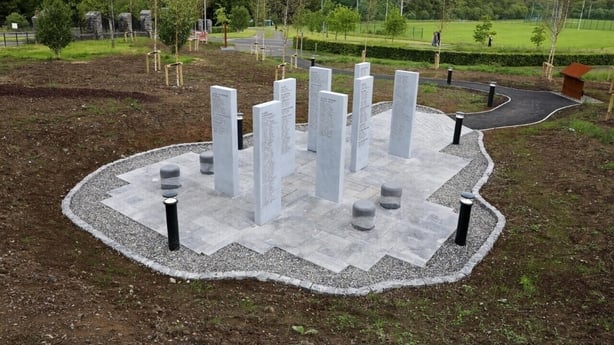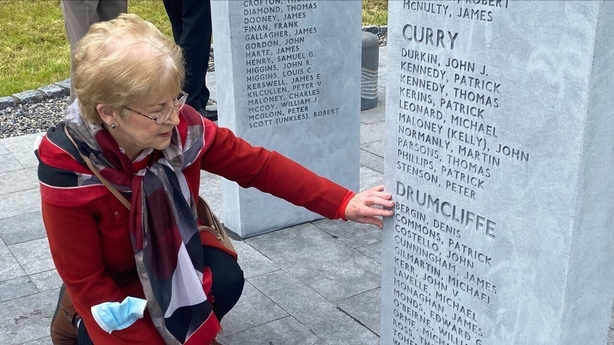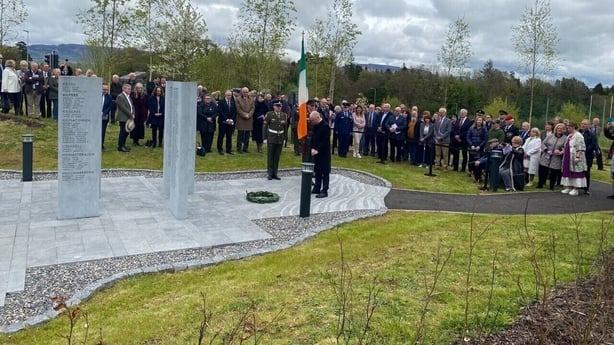A memorial garden to over 600 men and women from Co Sligo who died in World War One has been officially dedicated at a ceremony in Sligo town.
The focal point of the garden, which is designed as a place to reflect on the huge loss brought about by the war, is eight standing stones bearing the names of soldiers and civilians from across the county whose lives were lost in the Great War.
621 names are listed, including seven civilians and four women.
However, there is no reference to the regiment or rank of any of those who died.

The Lest Sligo Forgets committee which has been working to develop the garden since 2018, decided there would be no military or religious reference or emblems in the memorial garden.
Chairman Tommy Higgins said they simply wanted to "bring the men and women home".
Mr Higgins said the opening of the memorial garden shows that we have not forgotten these people.
"The purpose of the garden is to remember, in a symbolic way, those who could never return and to recognise the losses suffered by the families they left behind," he said.
Simone Hickey, a military historian who researched the stories of all those who died, said they came home not as soldiers but as men and women, members of local communities and families.
Each person is named under the townland from which they came and in the course of her painstaking research, Ms Hickey discovered the names of over 50 other people from Sligo who had not been previously acknowledged as having died in the war and whose names will be added to the memorial at a later date.
We need your consent to load this rte-player contentWe use rte-player to manage extra content that can set cookies on your device and collect data about your activity. Please review their details and accept them to load the content.Manage Preferences
Ms Hickey's great grandfather, Terence Rooney, died in the war and she said it is great to be able to touch a memorial with his name on it.
This, she said is something many people in Sligo have never been able to do until now because so many of those who died were never brought home and are buried in many parts of the world including France, Belgium and Turkey.
David Lawlor designed the garden and said: "it was all about the names".
Using the old motifs of the St Brigid's Cross and pinwheel, he said the stones, which they call sentinels, are positioned so it seems they are looking at each other.
This design, he said, aims to encourage people to walk among them looking for names and realising as they do so, that there are "just so many names there."
Many who came to the ceremony did indeed search out names as they walked among the sentinels.

One who came in search of a relative was Eileen Rooney whose great uncle, Patrick Commons, died in the war.
It was an emotional moment she said, people like her relative were often not spoken about after the war, but she said it was good to be there to remember him today.

The dedication ceremony at Cleveragh was attended by ambassadors and diplomatic representatives of several of the countries involved in the Great War, including England, Germany, Australia, Canada the US and France.
A Defence Forces colour party led those attending on a short walk to the garden where a wreath was laid in memory of those lost by former RTÉ Northern Editor and Sligo native, Tommie Gorman.







